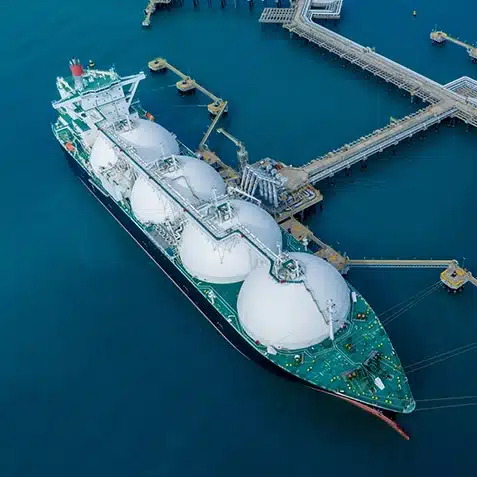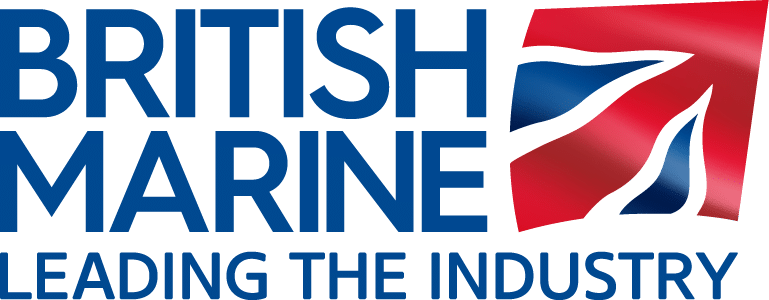LNG Shipping Course
Diploma in LNG Shipping
LNG Shipping
Maritime Training Academy’s LNG Operations Diploma delivers essential training in the handling, storage and transport of liquefied natural gas (LNG) within the global gas carrier industry.
This comprehensive LNG training course prepares professionals for operational and safety responsibilities within the LNG transport sector.
Study online and gain the technical, operational and regulatory expertise needed to work on LNG vessels, terminals and within compliance or support roles. This specialist certification is designed for engineers, officers, surveyors and port personnel working with LNG containment and transfer systems.

Professional LNG Shipping Certification
Build the skills required for cryogenic cargo handling, onboard safety management and regulatory compliance under the IGC Code.
Contact us below to enrol today, or speak with our experienced course advisors.

Duration:
12 - 18 months
Learn at your own pace
Online Course:
Study from anywhere

Cost:
Diploma: £3,195
Certificate: £2,295

Recognised by: 
LNG Shipping Diploma vs Certification
Choose the right path for your career:
Comprehensive Training: Including boil-off gas control, cryogenic safety, ship-to-shore transfer, containment systems, emergency procedures and regulatory frameworks under the IMO and IGC Code.
Flexible Study Duration: 12 – 18 month depending when you enrol to the program, study online at your own pace, from anywhere in the world.
Marine Industry Career Opportunities: 100% Online, with access to our student learning portal
Long-Term Career Impact: LNG Cargo Operator, Gas Carrier Officer, Terminal Safety Coordinator, LNG Surveyor, Port Inspector or Fleet Technical Support.
Global Recognition: Our Diplomas are recognised by the University of Portsmouth and are supported by industry associations.
Assignments: One assignment is required to be completed and submitted at the end of each module, based on that particular subject.
Certification: you will receive a PDF Digital certificate (Printed Certificate Completion Pack available).
Final Examination: There will be a final examination upon completing and submitting all student assignments (exams are sat in April or October).
Post-Nominal letters: On passing the Diploma you can also use these letters after your name: MTA Dip LNG
Digital Course Badge: Upon successful completion students will receive an exclusive course badge for use on business cards, LinkedIn profiles and website(s)!
Diploma - £3,195
A formal qualification for professionals working with LNG carriers, terminal operations or fleet compliance, with full assessment and tutor support.
✔
✔
✔
✔
✔
✔
✔
✔
✔
✔
Certificate - £2,295
Focused LNG training for those who do not require assessment. Ideal for support crew, shore staff or technical stakeholders seeking role-specific insight.
✔
✔
✔
✔
✔
✔
✔
LNG Shipping Curriculum: 13 Modules
Course content covers full lifecycle LNG vessel and terminal operations, cargo system design, emergency control, cryogenic workflows and compliance with classification societies and international gas carrier codes. You’ll also study risk mitigation procedures, IGC Code frameworks, boil-off gas recovery and transfer interface management between ship and shore.
Whether you work on board, in port operations or in a compliance role, this diploma equips you with the core LNG knowledge required in the energy shipping sector.
1. Introduction To Liquefied Natural Gas Carriers
- What is LNG?
- Properties of Methane and LNG
- World Energy Demand
- History of LNG Shipping
- LNG Ships
- Materials and Strength of Ships
- Gas Carrier Rules & Regulations
- Liquefied Gas Carriers
- LNG as a Marine fuel
2. International Code For The Construction & Equipment Of Ships Carrying Liquefied Gases In Bulk (IGC CODE)
- Brief Description of International Maritime Organisation (IMO)
- The LGC Code
- Gad, LNG Properties and Definitions
- Ship Survival Capability
- Ship Arrangements for LNG Ships
3. LNG Carrier Design And Construction
- LNG Carrier Design Factors
- LNG Carrier Market Supply
- Hull Form Selection
- LNG Containment Selection
- Boil Off Gas Handling
- LNG Carrier Propulsion Selection
4. LNG Containment Systems
- LNG Containment Systems
- GTT Mark III LNG Tank Systems
- GTT NO96 LNG Tank System
- Moss Spherical Tank
- IHI SPB Tanks
- Other LNG Containment Designs
5. Carrier Propulsion Systems
- Factors for Choosing Propulsion Plant for LNG Carriers
- Steam Turbine Propulsion Plant
- Ultra High Pressure and Temperature Turbines
- Dual Fuel Diesel Electric
- MEGI (Two-Stroke) and Four-Stroke DF Man Engines
- COGES Plant (Combined Gas Turbine Electric and Steam)
- Other alternative Propulsion Systems
6. LNG Cargo Operations
- Ship/Shore Compatibility
- Mooring and Fendering Installations
- Cargo Operation Procedures
- Ship/Shore Emergency Shutdown Systems
7. Custody Transfer
- What is Custody Transfer?
- Measurement Operations
- Automation, Safety and Control Systems
- High Voltage Electric Plant on LNG Ships
8. LNG Accidents
- Physical Hazards of LNG
- Human Factor Issues in the Marine Industry
- LNG Accidents
- Guidance on Risk Analysis & Safety on LNG Spills
- Mitigation of Risk
9. LNG Ship Management
- Ship Management System Requirements
- Training and Certification of Seafarers
- International Safety Management (ISM) Code
- The Maritime Labour Convention 2006
- Duties of a Ship Superintendent
10. Flag and Port State Control Inspections
- Port State Control
- Regions and Cooperation Between Port States
- Port State Control Inspections
- Deficiencies and Detentions
- Commercial Implications of Port State Detentions
- Maritime Labour Convention
11. LNG Ship Inspections
- Annual Surveys
- Surveys During Construction of LNG Ships
- Surveys After Construction of LNG Ships
- SIRE Inspections
- Buyers Inspections
12. Firefighting on LNG Ships
- General Discussion on Fire Safety
- Sources of Ignition
- Fire Suppression
- Fire Control Plans
13. Classification Societies and LNG Carriers
- Definition of Classification Society
- History of Classification Societies
- International Association of Classification Societies
- American Bureau of Shipping (ABS)
- Lloyd’s Register (LR)
- Indian Register of Shipping (IRS)
- Periodical Surveys of Cargo Installations on LNG Ships
- Current Status of LNG Carriers
Hear from our Students
Meet the Course Director
Ian Biles
Managing Director at Maritime Services International
Ian has led MSI to become one of the world’s leading surveying companies. Ian’s qualifications include: Master Mariner, RYA Yachtmaster Ocean, Naval Architect (BEng Ship Science) and Business Management (MA Business Management).
Practically Ian has worked on the new building Moss Rosenberg gas tankers in Mitsui (Northwest Sandpiper) and Mitsubishi (Northwest Stormpetrel), Japan and was part of a multidisciplinary team which undertook the life extension of the Technigas Methania.

LNG Shipping Course FAQs
Find out more about the course with our FAQs below.
What does the LNG Operations course entail?
You’ll study cryogenic containment, LNG transfer systems, IGC Code compliance, boil-off gas control, ship-to-terminal interface procedures and emergency operations.
What qualification will I receive?
You’ll earn a Diploma in LNG Operations from the Maritime Training Academy recognised across the global LNG transport and support industries.
How do I start a career in LNG vessel or terminal operations?
This course provides a structured pathway into LNG carrier operations or support roles. It’s ideal for marine officers, engineers, terminal staff or compliance professionals.
How much can LNG operations personnel earn?
Salaries typically range from £40,000 to over £90,000, depending on the role, vessel type and experience. LNG officers and cargo specialists often earn premium rates.
Is this training suitable for port or terminal staff?
Yes the course includes full shore-side LNG interface procedures and is ideal for terminal operators and safety personnel.
Is this LNG training suitable for both new and experienced professionals?
Absolutely. The course supports both those entering the LNG sector and experienced personnel such as Captains, Engineers, Superintendents, port staff and technical support teams. It’s ideal for building foundational knowledge or filling operational gaps in line with current LNG industry standards.
Why is LNG training important right now?
With global demand for LNG increasing and the number of LNG carriers growing year on year, there’s a clear need for skilled personnel both onboard and ashore. This training prepares you to meet that demand, with a focus on safety, compliance and operational readiness under the IGC Code.
Is the course aligned with the IGC Code?
Yes. The training is aligned with the International Gas Carrier (IGC) Code and other relevant regulatory frameworks.
See our FAQ page for more questions answered about MTA courses.
Supported by:


Why Choose The Maritime Training Academy?

Flexible
Online learning allows you to study in your own time, at your own pace from anywhere in the world. This saves on travel and classroom costs and allows you to fit your studies around your job and progress your career.

Supportive
While the nature of distance learning is independent study, we recognise the importance of support. Students can contact us at any time during their course for assistance and our team of industry experts are always on hand for advice.

Expertise
We have over 50 industry experts writing, developing and advising on our course material. We truly believe that allowing students to tap into their expertise and knowledge is of the utmost importance to fulfil your dream career.
If you would prefer to complete this as a classroom-based course, please contact us.
